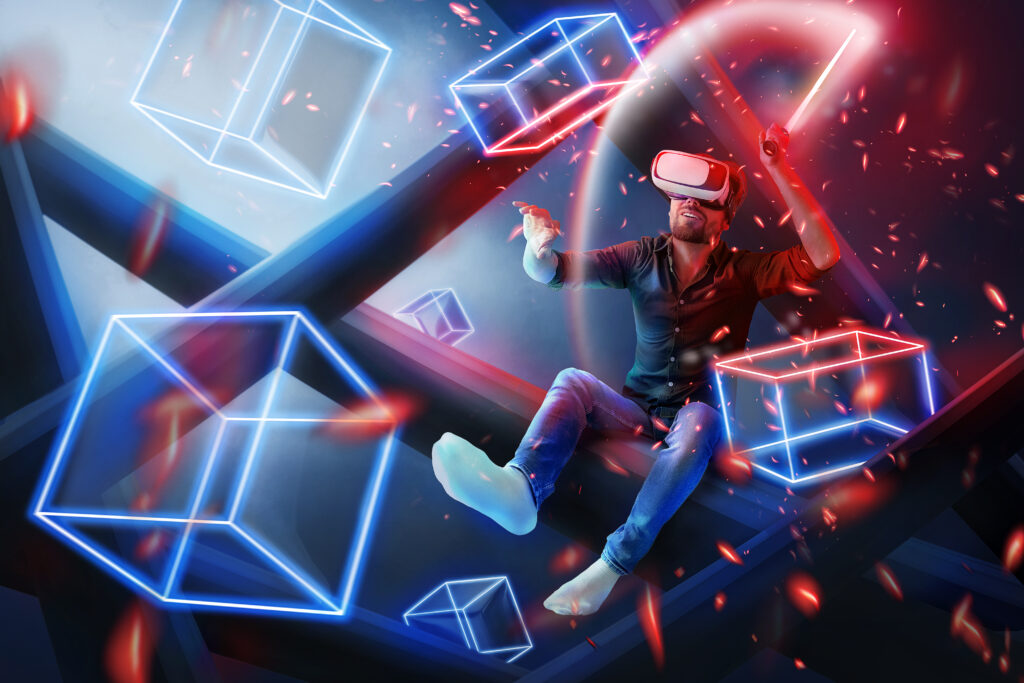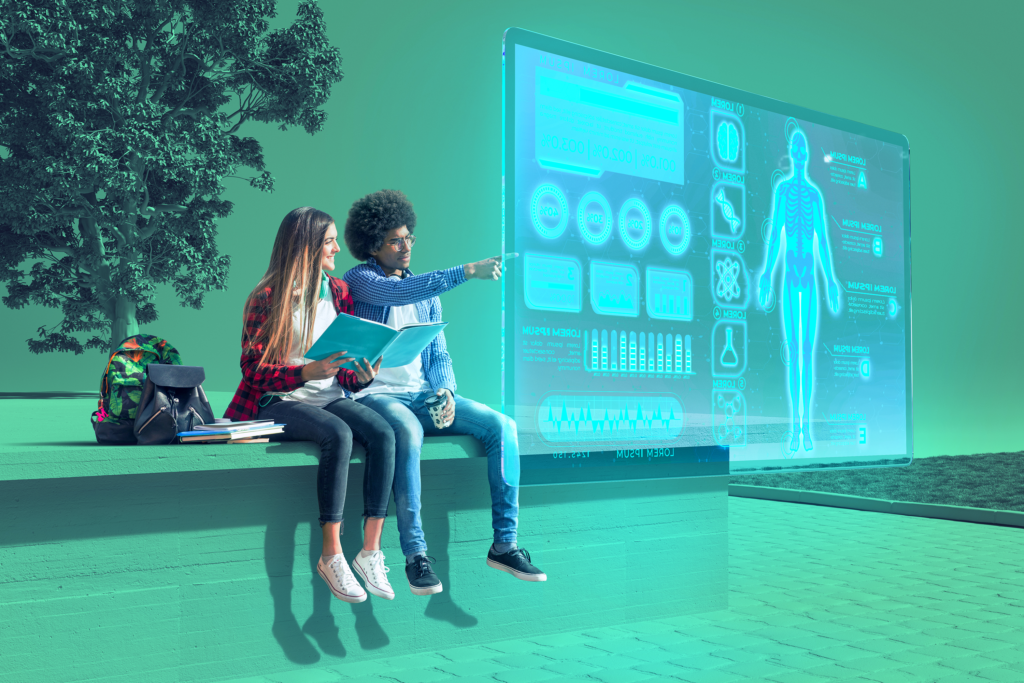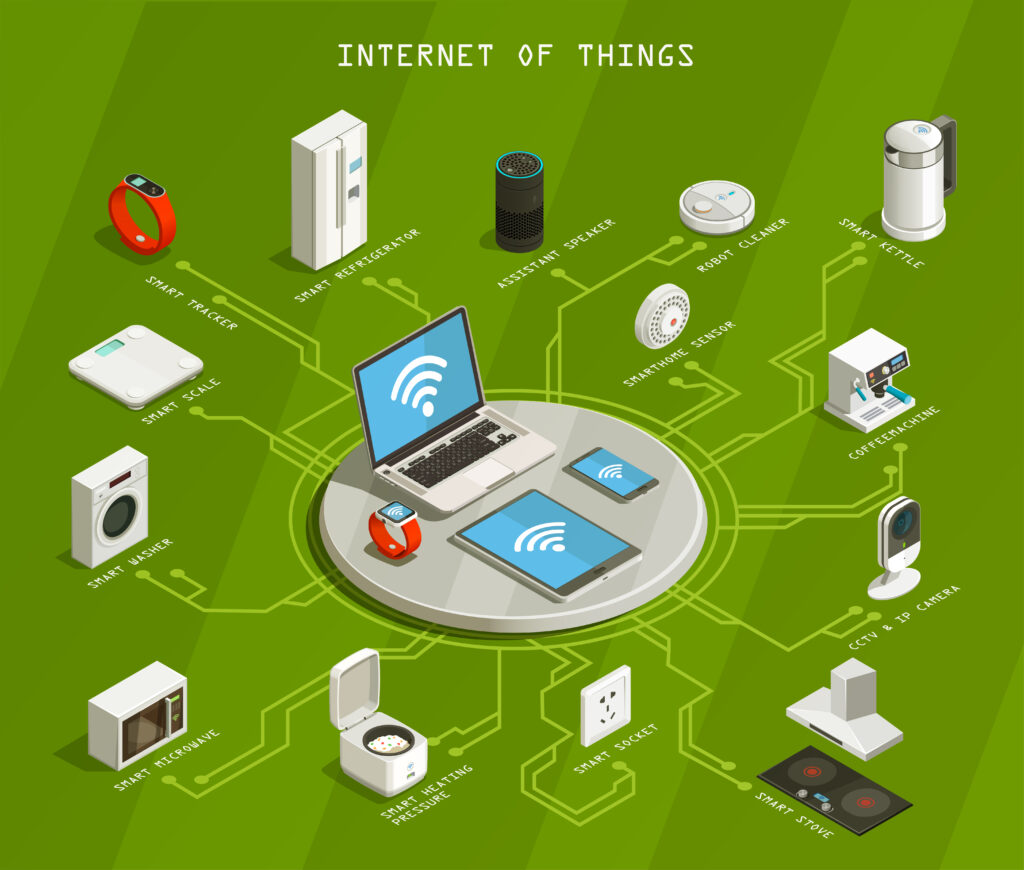"The metaverse is a revolutionary idea that combines virtual reality (VR), augmented reality (AR), and blockchain technology in the ever changing digital landscape of today. This essay examines the growth of the metaverse and its enormous effects on how we work, socialise, and communicate online."
In the rapidly evolving landscape of technology, the concept of the Metaverse has emerged as a tantalizing glimpse into the future. It’s a world where physical and digital realities blend seamlessly, and where human interactions transcend geographical boundaries. The Metaverse, once confined to the realms of science fiction literature and futuristic films, is poised to become an integral part of our daily lives.
At the heart of this transformative shift are three key technologies: Virtual Reality (VR), Augmented Reality (AR), and Blockchain. Together, they form the building blocks of the Metaverse, each contributing its unique capabilities to redefine how we live, work, and interact in the digital realm.
Table of Contents
The Metaverse Defined
The Metaverse, in its essence, is an expansive, interconnected digital universe that transcends the confines of specific platforms. It’s a place where people can communicate in real-time across vast distances, not just with each other but also with digital environments. It represents a convergence of the real and virtual worlds, offering boundless opportunities for innovation and exploration.
Let’s delve deeper into the roles that Virtual Reality (VR), Augmented Reality (AR), and Blockchain play in shaping this digital frontier.
Virtual Reality (VR): Building Immersive Worlds
Virtual Reality (VR) is a pivotal element of the Metaverse. It immerses users in fully artificial environments, often through motion-tracking equipment and headsets. VR technology is essential for enabling users to navigate and communicate within the expansive virtual space of the Metaverse. Imagine attending a global business meeting where you and your colleagues from around the world gather around a virtual conference table, all while comfortably seated in your own homes.

VR takes us beyond the boundaries of our physical reality, creating opportunities for exploration, interaction, and collaboration that were previously unimaginable. Whether it’s touring historical landmarks, attending virtual concerts, or conducting business negotiations in immersive settings, VR is redefining how we experience the world.
Augmented Reality (AR): Fusing the Physical with the Digital
While VR immerses users in entirely digital environments, Augmented Reality (AR) enhances the real world with digital overlays. AR introduces a layer of digital information onto our physical surroundings, blurring the lines between reality and the digital realm.
In the Metaverse, AR opens up new dimensions of interaction and productivity. Consider playing a location-based game like Pokémon GO, where digital creatures are superimposed onto the real world through your smartphone camera. Beyond gaming, AR can enhance remote work by seamlessly integrating digital data into your physical workspace, making it an indispensable tool for productivity.
AR is also redefining entertainment and social interaction. It allows users to engage with digital characters and objects within their immediate surroundings. From interactive museum exhibits to social media filters that add playful elements to your selfies, AR enriches our daily experiences.

Blockchain Technology: The Foundation of Trust
In the vast and interconnected Metaverse, trust is paramount. That’s where Blockchain comes into play. Blockchain is a decentralized digital ledger that ensures the security, transparency, and ownership of digital assets. It’s the foundational technology that underpins the Metaverse’s economy and ecosystem.
One of blockchain’s key features is its ability to prevent centralized control, making it ideal for creating a trustworthy digital economy within the Metaverse. Digital assets, ranging from virtual real estate to unique in-game items, can be owned, traded, and verified through blockchain technology. This empowers users with true ownership and control over their virtual belongings, instilling confidence in the Metaverse’s digital marketplace.
Beyond financial transactions, blockchain safeguards personal data and ensures privacy. It prevents fraudulent activities and establishes a system of trust in an environment where interactions occur primarily in the digital realm. Blockchain’s decentralized nature guarantees that transactions are secure, transparent, and tamper-proof.

Redefining Work and Productivity
The Metaverse is not just a playground for leisure and entertainment; it’s also transforming the way we work and collaborate. As VR, AR, and blockchain technologies continue to advance, they have the potential to reshape traditional workspaces and communication methods.
Imagine a scenario where your daily office commute involves putting on a VR headset, instantly transporting you to a virtual workspace where you meet colleagues from different continents. In this digital realm, distance becomes irrelevant, and collaboration reaches new heights.
Moreover, the integration of AR into remote work setups can make information more accessible, allowing for more efficient decision-making and problem-solving. Your physical surroundings become a canvas for digital tools, enhancing your productivity.
Blockchain ensures the security of confidential business data and transactions, eliminating the need for intermediaries. This not only streamlines processes but also reduces costs and the risk of data breaches.
Redefining Social Interaction
Socializing in the Metaverse goes beyond text-based chat or video calls. It involves gathering with friends, family, and colleagues in realistic or entirely immersive digital environments. Physical distance ceases to be a barrier to shared experiences.
Picture attending a concert in the Metaverse where the audience spans the globe, yet everyone feels like they’re in the front row. Events like conferences and social gatherings can be hosted in virtual spaces, breaking down the constraints of physical distance.
The Metaverse is not just about connecting with people you already know; it’s also about meeting new individuals who share your interests. VR and AR technologies enable users to interact with others in ways that mimic face-to-face communication, fostering a sense of presence and connection that transcends traditional online interactions.
The Metaverse Economy: A Digital Frontier
Within the Metaverse, a thriving digital economy is taking shape. Users can buy and sell virtual properties, trade digital artwork, and even find virtual employment to sustain themselves. Blockchain technology, with its ability to verify and secure digital assets, is the driving force behind this burgeoning economy.
Digital assets, such as virtual real estate, have real-world value in the Metaverse. Blockchain’s decentralized ledger ensures the authenticity and ownership of these assets. This opens up new opportunities for entrepreneurs, artists, and creators to monetize their digital creations.
The Metaverse’s economy is not limited to entertainment and virtual goods. It extends to various industries, including education, healthcare, and finance. As more sectors embrace the Metaverse, new economic models and opportunities will continue to emerge.
Challenges and Ethical Considerations
As the Metaverse continues to evolve, it presents a host of challenges and ethical considerations. Privacy, security, and the seamless integration of the virtual and physical worlds are among the key issues that need to be addressed.
Data Privacy: In a world where digital interactions are the norm, protecting user data and privacy becomes paramount. Striking the right balance between data collection for functionality and respecting individual privacy is a challenge that the Metaverse must navigate.
Identity Protection: As our digital presence becomes more significant, safeguarding our online identities and preventing identity theft become critical concerns. Blockchain can play a crucial role in ensuring the security of user identities.
Cyberbullying Knows No Boundaries: Unmasking the Reality of Harassment in the Metaverse and Beyond.Creating safe and inclusive digital environments requires proactive measures to prevent and address such behavior.
Digital Inclusion: Ensuring that the Metaverse is accessible and inclusive to all, regardless of socioeconomic status or physical abilities, is a priority. This involves addressing issues of affordability, digital literacy, and accessibility.
Security: With the reliance on digital assets and transactions, security becomes a paramount concern. Protecting against hacks, fraud, and other cybersecurity threats is essential for maintaining trust in the Metaverse.
The Road Ahead: A Metaverse-Enabled Future
The Metaverse is no longer a distant dream; it’s a rapidly advancing reality. As VR, AR, and blockchain technologies continue to evolve, our online interactions and experiences are poised for a profound transformation. Work, socialization, and leisure are expected to seamlessly converge in the digital frontier that the Metaverse promises to create, transcending the limitations of the physical world.
Embracing the Metaverse means embracing a digital revolution. It challenges us to rethink how we live, work, and interact in an interconnected digital ecosystem. The Metaverse invites us to be pioneers in this new era, setting the standard for a world that defies limitations and defines the future of connectivity.

Embracing the Metaverse: A Digital Revolution
The Metaverse, powered by the synergy of Virtual Reality (VR), Augmented Reality (AR), and Blockchain, stands as a paradigm-shifting concept in our ever-evolving digital landscape. This article has explored both the promises and the challenges of the Metaverse, heralding a transformative era that beckons us to reimagine our digital existence.
The metaverse, which is propelled by blockchain, VR, and AR, has the potential to transform how we live online. Its ability to alter work, socialization, and online connections is what makes it so alluring.
Unleashing Digital Transformation
The Metaverse, driven by blockchain, VR, and AR, is poised to revolutionize our online lives. It has the potential to reshape the way we work, socialize, and connect in the digital realm.
The Diverse Appeal of the Metaverse
In the midst of advancements in VR, AR, and blockchain, the Metaverse emerges as a captivating breakthrough. It has the power to entirely reshape our online existence.
Setting the Metaverse Standard: A New Digital Era
We stand on the brink of a digital renaissance, as VR and AR technologies, along with blockchain’s trust-building capabilities, merge with the 9 Powerful Things of Artificial Intelligence in Healthcare. The Metaverse challenges us to envision future possibilities for our online presence.
The Metaverse is not just a vision of the future; it’s a present reality that continues to evolve and expand. As we navigate this digital frontier, we have the opportunity to shape the Metaverse into a space that enhances our lives, fosters innovation, and upholds the values of trust and inclusivity. In this era of rapid technological advancement, the Metaverse represents a boundless horizon of digital possibilities.
![]()




